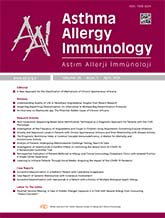


Hereditary angioedema (HAE) is a rare genetic disorder characterized by recurrent episodes of localized edema, significantly impairing the health-related quality of life (HRQoL) in affected individuals. The recurrent and unpredictable episodes of angioedema lead to considerable pain, discomfort, and distress, directly affecting physical functioning and daily activities. Many patients report severe emotional burdens, including anxiety and depression, stemming from both the unpredictability of attacks and the fear of potential hereditary transmission to offspring. In children, the impact of HAE is particularly pronounced, affecting social development and educational attainment. Frequent hospital visits and school absenteeism hinder their academic performance and social interactions, which are crucial for their emotional and psychological development. Psychological assessments have shown elevated anxiety levels in children with HAE, correlating this distress with decreased overall quality of life. For adults, the ramifications of HAE extend into social and economic dimensions. Adults frequently face interruptions in their employment due to the disease, leading to economic strain characterized by high medical costs and lost productivity. There is a notable relationship between the frequency of attacks and overall HRQoL, where higher attack rates correlate with lower scores in the emotional, social, and physical domains. The effectiveness of prophylactic treatments has been documented, indicating that reductions in attack frequency contribute to improved HRQoL. However, barriers such as medication access, side effects of treatments, and financial burdens remain prevalent. Despite advancements in understanding and managing HAE, the multifaceted impact of the disease necessitates comprehensive care strategies that address not only the physical symptoms but also the psychological and social dimensions of living with HAE.